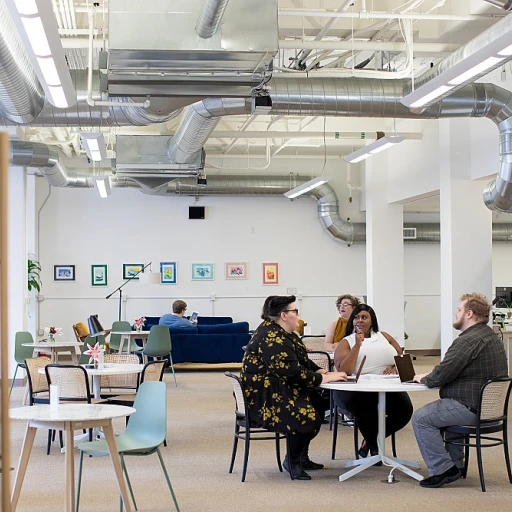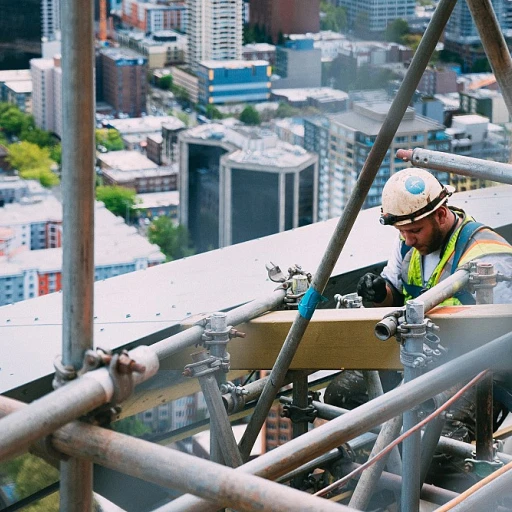
Understanding the Hospitality Staff Shortage
Exploring the Roots of Hospitality Staff Shortages
The hospitality industry, encompassing hotels, restaurants, and other guest services, has been grappling with a significant staff shortage. This issue, exacerbated by the pandemic, has left many hospitality operations struggling to fill crucial roles. The shortage of hospitality workers is not just a temporary hiccup but a complex challenge that requires a deeper understanding.
Before the pandemic, the hospitality sector already faced staffing shortages due to high turnover rates and the demanding nature of the work. However, the pandemic intensified these challenges, leading to a labor shortage that has impacted the guest experience and overall operations. Many employees left the industry in search of better work-life balance or more stable employment, leaving a gap that has proven difficult to fill.
As the industry rebounds, the demand for hospitality staff has surged, yet the supply of willing workers has not kept pace. This imbalance has forced hotels and other establishments to rethink their recruitment strategies and focus on enhancing the candidate experience to attract and retain talent. The role of candidate experience in recruitment has become more crucial than ever, as it can significantly influence a potential employee's decision to join or stay in the industry.
For those interested in exploring strategic solutions to these staffing challenges, enhancing candidate experience through strategic array hiring offers valuable insights. By understanding the root causes of staff shortages and implementing effective recruitment strategies, the hospitality industry can begin to address these pressing issues and improve both employee satisfaction and guest services.
The Role of Candidate Experience in Recruitment
Impactful Recruitment Outcomes through Candidate Experience
The hospitality industry faces an undeniable challenge with staffing shortages, particularly in positions crucial to operations such as front desk, kitchen staff, and other essential roles. As the industry strives to meet this demand, the significance of candidate experience in recruitment becomes increasingly apparent. A well-thought-out approach to candidate experience can not only help fill these vacancies but also improve the quality of hires and enhance the overall guest experience in hotels and other hospitality settings. In environments where employees are the face of guest interactions, attracting skilled workers is paramount. For instance, a positive candidate experience during recruitment can instill a lasting impression, making potential employees more inclined to choose one hotel over another. This can have a trickle-down effect on the overall reputation of the hospitality sector.Aligning Expectations and Creating Loyalty
Establishing trust and clearly communicating expectations from the outset can significantly reduce misunderstandings and build loyalty. Prospective hospitality workers are evaluating potential employers just as much as employers are assessing them. Therefore, transparency in job descriptions and requirements goes a long way. Additionally, enhancing the journey of a job applicant benefits both parties. From the application to onboarding, each touchpoint offers an opportunity to engage the candidate, assess cultural fit, and provide insights into the hotel's work environment. This process fosters a sense of belonging and sets the stage for a smoother integration into the workforce. Overall, in dealing with staff shortages, optimizing candidate experience offers a powerful tool in recruitment. It aids in attracting quality applicants and helps retain them, ultimately contributing to a more robust and responsive workforce ready to deliver excellent guest experiences. The strategic use of technology in enhancing these experiences, which can be explored further, adds an additional layer of impact, making the recruitment process more efficient and engaging.Challenges in Creating a Positive Candidate Experience
Overcoming Barriers to a Positive Experience
Creating a positive candidate experience in the hospitality industry, especially during a time of staff shortages, presents unique challenges. Recruiters aim to attract top talent in a labor market where potential employees have numerous options. Achieving success in this endeavor calls for a clear understanding of the common obstacles. Firstly, the nature of the hospitality sector itself presents hurdles. Long hours and high-pressure environments can deter candidates. In an industry where work-life balance is sometimes compromised, it becomes crucial for operators to convey a clear, honest picture of the work environment. Candidates must understand not only the demands but also opportunities for growth within their roles. Additionally, staff shortages occasionally lead to increased workloads for existing employees. This scenario can tarnish the guest experience if the shortage is not addressed effectively. Employers must manage their current hospitality workers' burdens while onboarding new recruits, ensuring that service standards remain high, even as they fill critical gaps. Communication plays an essential role in creating a favorable candidate experience. A lack of prompt correspondence can leave candidates frustrated and disengaged. In a market defined by shortages, where top candidates might be entertained by multiple offers, timely responses are vital. Clearly outlining the recruitment process can also alleviate uncertainty, helping potential hires feel valued from the onset. It's also crucial to assimilate genuine cultural aspects of the company into the recruitment process, showcasing the unique workplace atmosphere to prospective employees. Companies need to demonstrate an attractive work environment, even if they are operating short-staffed. Finally, collecting and acting on feedback is imperative for employers aiming to enhance candidate engagement. Learning from past recruitment processes and iteratively improving them ensures that the approach remains candidate-centric in a competitive industry. For more insights into optimizing the candidate journey, this blog offers valuable perspectives.Strategies to Enhance Candidate Experience
Implementing Effective Strategies for a Positive Candidate Experience
In the midst of staffing shortages within the hospitality sector, creating a positive candidate experience has become a strategic priority for hotel operations. It's crucial not only to attract potential employees but also to ensure their journey from application to onboarding is seamless and inviting. A poor experience can deter prospective staff, exacerbating existing staffing challenges. Crafting this positive experience starts at the very first interaction. Whether through a job posting or a direct application, it's imperative for the hospitality industry to present clear, concise, and engaging job descriptions. Potential staff should be able to readily understand their roles and the expectations within the hospitality operations.Communication is a pillar in enhancing candidate experience. Providing timely feedback during the recruitment process speaks volumes about a hotel's culture and values. Candidates appreciate transparency about timelines and expectations, which can foster goodwill and enthusiasm. In the competitive realm of the hotel industry, such practices may be the differentiating factor in securing dedicated hospitality workers. ### Streamlining the Application Process A complex or lengthy application process can deter potential hospitality staff, particularly when the labor market is tight. Simplifying this process can significantly enhance the candidate experience. Hotels are finding success by reducing unnecessary steps and offering mobile-friendly application options to suit the modern job seeker's lifestyle. This not only broadens the pool of candidates but respects their time and enhances engagement. ### Prioritizing Onboarding and Training Once hired, the onboarding and training process is critical in setting the right tone for new employees. An efficient, welcoming onboarding experience helps integrate new staff smoothly into their roles. Providing clear information about job responsibilities, expectations, and company culture ensures new employees feel supported from the outset. In turn, this can reduce turnover rates and foster long-term job satisfaction, a crucial factor amid ongoing staffing shortages. ### Fostering a Positive Work Environment Finally, cultivating a positive work environment with a focus on work-life balance is key to maintaining staffing levels. Offering flexible schedules and understanding the needs of hospitality staff can greatly improve job satisfaction and promote loyalty. Hotels that prioritize the well-being of their employees often find it reciprocated in high levels of guest satisfaction, benefiting the entire hospitality operation. In light of current staffing challenges, these strategies are more than just best practices; they are vital tools for sustaining operations and ensuring the ongoing success of the hospitality industry.
Leveraging Technology in Recruitment
Embracing Digital Tools for Recruitment Efficiency
In the hospitality industry, where staff shortages are a pressing concern, leveraging technology can significantly enhance the candidate experience. As hotels and other hospitality businesses strive to fill positions, digital tools offer a streamlined approach to recruitment, making the process more efficient for both employers and potential employees.
Streamlining the Application Process
One of the primary benefits of technology in recruitment is the ability to simplify the application process. Online platforms allow candidates to apply for positions quickly, reducing the time and effort required to submit applications. This is particularly important in the fast-paced hospitality sector, where staffing shortages can impact operations and guest experience. By making it easier for candidates to apply, businesses can attract a larger pool of applicants, increasing the chances of finding the right fit for their team.
Enhancing Communication with Candidates
Effective communication is crucial in creating a positive candidate experience. Technology enables recruiters to maintain regular contact with applicants, providing updates on their application status and next steps. Automated emails and messaging systems can keep candidates informed and engaged, reducing uncertainty and improving their overall experience. This is vital in the hotel industry, where timely communication can make a significant difference in securing top talent.
Utilizing Data for Better Decision-Making
Data analytics tools can provide valuable insights into the recruitment process, helping businesses identify areas for improvement. By analyzing data on candidate interactions and feedback, hospitality managers can make informed decisions to enhance their recruitment strategies. This data-driven approach allows for continuous improvement, ensuring that the candidate experience evolves to meet the changing needs of the labor market.
Virtual Interviews and Assessments
With the rise of remote work and digital communication, virtual interviews and assessments have become more common in the recruitment process. These tools allow hospitality businesses to evaluate candidates efficiently, regardless of their location. Virtual interviews can save time and resources, enabling recruiters to focus on finding the best candidates to address staffing shortages. Additionally, online assessments can provide a more comprehensive view of a candidate's skills and suitability for the role.
By integrating technology into recruitment practices, the hospitality industry can not only address current staffing shortages but also build a more resilient and adaptable workforce for the future.
Measuring Success and Continuous Improvement
Evaluating Both Progress and Potential Areas for Growth
The hospitality industry faces unique challenges, especially amid staffing shortages. It is paramount for businesses to continuously evaluate their recruitment processes to attract and retain top talent. This involves not only filling positions but also ensuring a top-notch guest experience by having a satisfied and well-supported team. Measurements of success can be a tell-tale sign of the efficacy of candidate experience strategies.
Tracking Key Performance Indicators in Recruitment
- Time to Hire: A critical metric, especially in an industry where speed is essential to fill sudden gaps in staffing. Shortening the time between engaging a candidate and their first day at work improves both operations and morale in the short-staffed hotel industry.
- Candidate Satisfaction: Gathering feedback from applicants about their experience helps identify gaps in the recruitment process. This can aid in aligning staffing strategies with candidate expectations and industry standards.
- Offer Acceptance Rate: Reflects on the attractiveness of your offer and recruitment process. A higher rate indicates a competitive standing in the fight against staff shortages.
Implementing Continuous Improvement Practices
After analyzing these key metrics, hospitality businesses need to adapt their approaches continuously. Encouraging open communication between leaders and employees aids in refining candidate experiences. Highlighting areas of success and sharing them across branches ensures unified improvement strategies within the hospitality sector. Sharing best practices, consider incentives based on these evaluations, such as work-life balance enhancements or training opportunities, can make your company more appealing.













